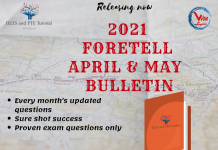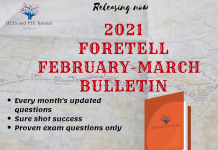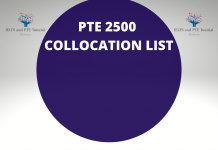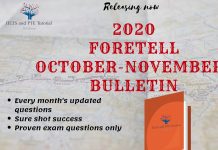The Australian Health Practitioner Regulation Agency (AHPRA) is the organisation responsible for the implementation of the National Registration and Accreditation Scheme across Australia.
WHO ALL CAN APPLY
- Medical practitioners
- Dental practitioners (dentists, dental hygienists, dental prosthetics, dental therapist )
- Nurses and midwives
- Pharmacists
- Physiotherapists
- Psychologists
- Osteopaths
- Optometrist
- Aboriginal and Torres Strait islander
- Occupational therapist
- Chinese medicine practitioners
- Medical radiation practitioners
- Podiatry
- Aboriginal and Torres Strait islanders
NATIONAL BOARDS
- Chinese medicine Board of Australia
- Chiropractic Board of Australia
- Optometry Board of Australia
- Medical Board of Australia
- Dental Board of Australia
- Nursing and midwifery Board of Australia
- Pharmacy Board of Australia
- Physiotherapy Board of Australia
- PARAMEDICINE Board of Australia
- Occupational therapy Board of Australia
- Podiatry Board of Australia
- Psychology Board of Australia
- Osteopathy Board of Australia
- Aboriginal and Torres Strait islander Board of Australia
REGISTRATION STANDARDS
- Codes and guidelines
Each National Board publishes codes and guidelines to provide guidance to health practitioners in the application of the registration standards.
- Criminal history
the criminal history registration standard is the same across all the regulated professions. When a practitioner first applies for registration, the National Board requires the applicant to declare their criminal history in all countries, including Australia. All registered health practitioners must inform their National Board if they are:
- charged with an offence punishable by 12 months imprisonment or more, or
- Convicted or found guilty of an offence punishable by imprisonment in Australia and/or overseas.
3.Continuing professional development
Continuing professional development (CPD) is how health practitioners maintain, improve and broaden their knowledge, expertise and competence, and develop the personal and professional qualities required throughout their professional lives.
4.Professional indemnity insurance
All health practitioners who undertake any form of practice in their respective profession(s) must have professional indemnity insurance (PII) arrangements that comply with the relevant registration standard, for all aspects of their practice.
- Recency of practice
To ensure that they are able to practise competently and safely, registered health practitioners must have recent practice in the fields in which they intend to work and maintain an adequate connection with their profession.
- English language skills
Revised registration standards for English language skills are now in force for all professions, except Aboriginal and Torres Strait Islander health practice.
THE REVISED STANDARDS ARE:
- a common standard for 10 professions: Chinese medicine, chiropractic, medical radiation, occupational therapy, optometry, osteopathy, pharmacy, physiotherapy, podiatry and psychology.
- a standard for dental practitioners
- a standard for medical practitioners, and
- a standard for nursing and midwifery
APPLICABILITY
This standard applies to all applicants for initial registration.
- It does not apply if you are applying for non-practising registration or if you are a student.
QUALIFYING CRITERION’S
For initial registration you must demonstrate your English language competency in one of the following ways:
- English is your primary language
- You have taken all of your primary and secondary education which was taught and assessed solely in English in a recognised country.
- Tertiary qualifications in the relevant professional discipline, which you are relying on to support your eligibility for registration is again taught and assessed solely in English in a recognised country.
- Combination of secondary education and tertiary qualifications
- At least two years of your secondary education which was taught and assessed solely in English in a recognised country,
- 1b
- You have undertaken and satisfactorily completed at least six years’ (full-time equivalent) continuous education taught and assessed solely in English in the relevant professional discipline, in any of the recognised countries.
(Recognised countries :Australia • Canada • New Zealand • Republic of Ireland • South Africa • United Kingdom, or • United States of America.)
ENGLISH LANGUAGE TESTS
You achieve the required minimum scores in one of the following English language tests and meet the requirements for test results specified in this standard:
| TEST | OVERALL SCORE | COMPONENTS | SITTINGS | DURATION | REMARKS |
| IELTS | 7 | MINIMUM 7 IN EACH COMPONENT | MAX 2 | 6 MONTHS | A minimum overall score of 7 in each sitting, OR MINIMUM 7 in each component across the two sittings |
| PTE Academic | 65 | MINIMUM 65 IN EACH COMPONENT | MAX 2 | 6 MONTHS | A minimum overall score of 65 in each sitting MINIMUM 65 in each component across the two sittings, |
| OET | B | MINIMUM SCORE OF B IN EACH COMPONENT | MAX 2 | 6 MONTHS | A minimum score of B in each component across the two sittings, no score in any component of the test is below C |
| TOEFL iBT | minimum total score of 94 | 24 for LISTENING 24 for READING 27 for WRITING 23 for SPEAKING |
MAX 2 | 6 MONTHS | Not less than 20 for listening − 19 for reading − 24 for writing, and − 20 for speaking |
TEST RESULTS
Test results will be accepted if they were obtained:
1.1 Within the two years before the date you lodge your application for registration OR
1.2 More than two years before the date you lodge your application for registration if, in the period since the test results were obtained.
For the purposes of calculating time, if an applicant relies on test results from two sittings, time begins to run from the date of the earlier sitting.










